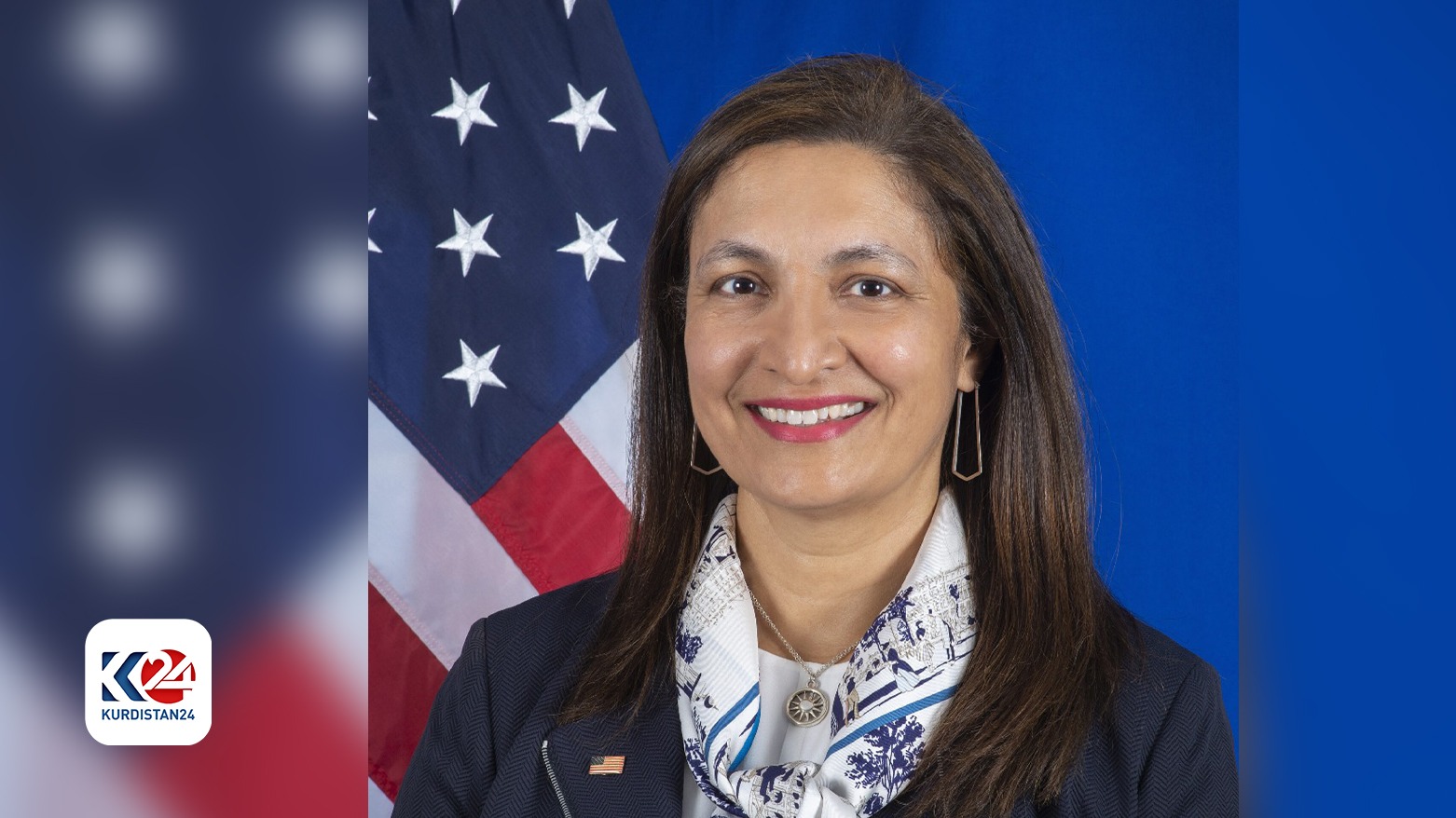Senior U.S. Envoy visits Baghdad, Erbil, Mosul—after Wash DC Visits of Kurdish Prime Minister, Iraqi Prime Minister

WASHINGTON DC, United States (Kurdistan 24) – The State Department has announced that Undersecretary of State for Civilian Security, Democracy, and Human Rights, Uzra Zeya, is visiting two countries: Jordan and Iraq.
Zeya’s purpose is “to advance regional humanitarian, human rights, and civilian security priorities,” according to a statement released on Wednesday by the office of the Department’s Spokesperson.
Zeya’s trip began on Monday and will last until Friday. Her first stop was in Amman, where her discussions focused on the war in Gaza and Jordan’s role in facilitating the delivery of humanitarian aid to the Palestinians there.
She then traveled onto Baghdad.
Iraq is Now on the US Agenda
Zeya’s visit comes after a series of significant diplomatic engagements involving Iraq, and, presumably, her trip builds on and develops them.
This is actually a relatively new development. When the Biden administration first took office, its Middle Eastern diplomacy focused on renewing the Iranian nuclear deal, concluded by President Barack Obama in 2015, but which former President Donald Trump left in 2018.
In the end, that initial diplomacy was unsuccessful. But as long as it topped the administration’s Middle East agenda, issues regarding Iraq including those important to the Kurds, received short shrift.
However, that began to change in the second half of 2023, and senior White House officials held preliminary meetings then with the Prime Minister of the Kurdistan Regional Government (KRG), Masrour Barzani, and Iraqi Prime Minister, Mohammed Shia’ al-Sudani.
Thus, earlier this year, in late February, Barzani made his first visit to Washington in his current capacity as KRG Prime Minister.
Read More: KRG Prime Minister Meets with U.S. Secretary of State
Barzani’s visit to Washington was followed in mid-April by the first visit of Iraqi Prime Minister Mohammed Shia’ al-Sudani to the U.S. capitol. Sudani is not well-traveled abroad, and it was his first visit, in any capacity at all, to Washington.
The Biden administration acted very deliberately in arranging the visits in that order, with Barzani first, so it could properly understand the problems between Erbil and Baghdad. Then, in their discussions with the Iraqi delegation that would follow, it could press for a resolution of those differences.
It was the first time that any U.S. administration had done that.
Under Secretary Zeya’s Current Travels
After visiting Amman, Zeya traveled to Baghdad, where she “met with Prime Minister Sudani, Deputy Prime Minister [Fuad] Hussein, Minister for Migration and Displacement [Evan] Jabro, and Minister of Interior [Abdul Amir] Shammari,” according to the State Department announcement.
Jabro may be an unfamiliar name. She is a Chaldean Christian and plays a major role in helping to return the many Christians to their homes in Mosul after they fled to the Kurdistan Region, following ISIS’s sudden emergence in northern Iraq in 2014.
Jabro was first appointed as Migration and Displacement Minister In 2020, under Prime Minister Mustafa al-Kadhimi. Previously, she had been a biology teacher.
The State Department announcement also said, “In Erbil, the Under Secretary will engage Kurdistan Regional Government President Nechirvan Barzani, Prime Minister Masrour Barzani, Deputy Prime Minister [Qubad] Talabani, and Minister of Interior [Rebar] Ahmed.”
“Throughout her visit,” she “will encourage Iraqi federal and IKR [Iraqi Kurdistan Region] leaders to deliver progress for survivors of the ISIS genocide, including Yezidis and other religious and ethnic groups, [as] the ten-year anniversary of these atrocity crimes approaches,” the statement concluded.
